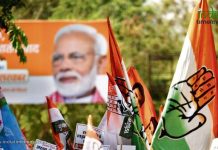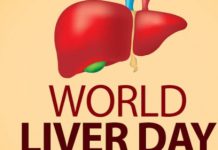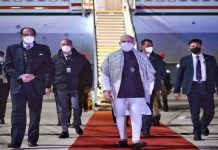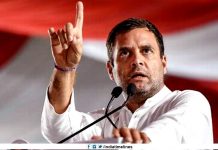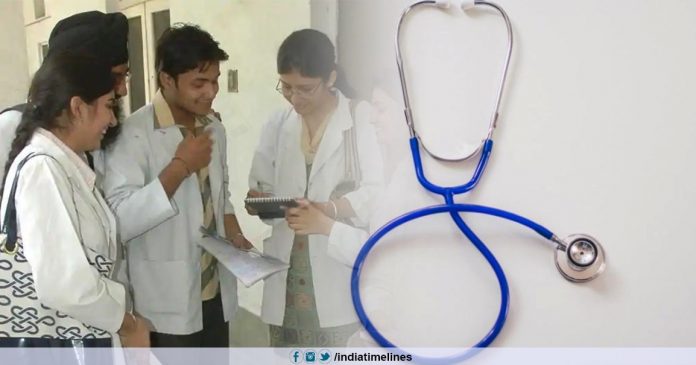
Will the 37% reservation for OBC and poor in NEET hurt the general category students?- The Central Government has increased the All India Quota (AQI) of the National Eligibility-cum-Entrance Test (NEET) for students belonging to Other Backward Castes (OBC) and Economically Weaker Section (EWS) i.e. poor upper castes by 27% and 27% respectively. Accepted 10% reservation. It is through NEET that suitable students are selected for admission to medical and dental colleges across the country. Competitive candidates who qualify NEET get admission in all undergraduate (UG) and postgraduate (PG) medical and dental courses.
- What is the meaning of All India Quota?
The allotment of seats in medical and dental colleges is done based on All India Quota and State Quota. Admission is taken under the All India Quota on 15% of the total undergraduate seats in government medical colleges while 50% of the post-graduate seats. The remaining 85% UG seats and 50% PG seats are given to the children of the state where the college is located. The system of All India Quota was implemented in 1986 on the order of the Supreme Court. The top court had said that meritorious students should get an opportunity to study in a medical college in any other state other than their own state and there should not be an obstacle in their place of residence. Hence, the Supreme Court opened the way for merit-based admission in every government college. Note that 100% of seats in Deemed and Central Universities, ESIC and Armed Forces Medical College (AFMC) are covered under the All India Quota.
- How is it decided whether a student will get admission in All India Quota or State Quota?
The merit list of successful students in NEET is prepared. In this, the students whose ranking is high, get admission in any college across the country under the All India Quota. The student whose score is not sufficient in terms of high ranking gets admission in any college of the respective state under the state quota.
- If only OBC and EWS categories will get reservations, then what will happen to other reserved categories?
The students of Scheduled Castes (SCs) and Scheduled Tribes (STs) have got this facility since the year 2007. The Supreme Court had implemented 15% reservation for SCs and 7.5% for STs in the All India Quota.
- Which medical and dental courses in which now OBC and EWS category will get admission?
OBC and EWS category candidates will benefit from reservations from the current academic session 2021-22 for admission to courses like MBBS, MD, MS, Diploma, BDS, and MDS.
- How many students of OBC and EWS categories are expected to benefit from the new reservation system?
A statement by the Union Health Ministry said that from this academic session, OBC and EWS categories will get the benefit of reservation in seats with All India Quota in medical colleges. With this, about 1,500 OBC students will get the benefit of reservation while taking admission in MBBS and 2,500 students for PG courses. At the same time, EWS students will get the benefit of reservation in 550 and 1,000 seats respectively.
According to the All India Federation of OBC Employees Welfare, around 40,800 seats were allotted under the All India Quota between 2017 and 2020 in state government medical and dental colleges. That is, if the reservation was applicable for these seats, about 10,900 OBC students would have got admission under the reservation.
- Will the seats of general category students decrease after increasing the reservation?
In the year 2009, when OBC reservation was implemented in higher educational institutions, the non-reserved seats were also increased in the same proportion so that the percentage of general seats was not reduced. Therefore, higher educational institutions implementing OBC reservation
had increased the seats here by 50%. Similarly, to provide 10% reservation to the EWS category, educational institutions had to increase the seats by 20%. In this context, it is believed that a sufficient number of seats will be increased to provide a total reservation of 37% (27+10) to the OBC-EWA category in the All India quota seats in medical-dental colleges for admission to UG-PG courses. The number of general category students should not be reduced.
- So was the reservation system not applicable for admission in medical-dental colleges before 2007?
No. As mentioned above- the Supreme Court in the case of Abhay Nath v University of Delhi et al. on 31st January 2007 made provision for reservation for ST and ST categories in medical colleges. In the same year, the government passed the Central Educational Institutions (Reservation in Admission) Act, providing for 27% reservation for OBC students for admission in central educational institutions. Since the State Governments used to give OBC reservations in their medical and dental colleges only on seats other than the All India quota, the reservation in admission to seats under the All India quota was not applicable there. In 2019, through the 103rd Constitutional Amendment, the central government had made a provision of 10% reservation for the economically backward class and implemented it for admission in central educational institutions, but the All India quota of NEET was still untouched.




